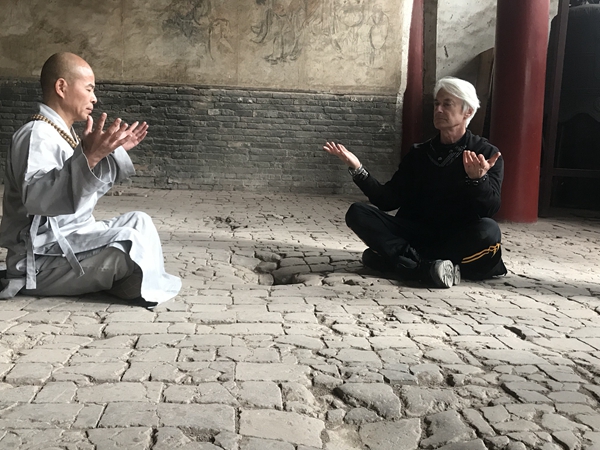

Change and challenges
The CPC approach, as proven through the decades, comes in large part from its adaptation to change, something that is inherent in Chinese culture, Brahm says.
"This is key to the success of the Party as a governing structure to respond to the dynamism of change.
"It understands change because that is a very fundamental part of Chinese culture-change is part of one of the earliest philosophies that arose, the fact that the only thing that's constant is change itself. The ability of the Party to constantly remake itself each decade to meet each circumstance is something that the West doesn't give it credit for," he says.
Those strengths are important because the Party needs to continue tackling the challenges that come with the country's transition in modern times, Brahm says.
"I have these discussions with leaders all the time here, and they are very open to ideas. We speak very frankly, and I say that from my experience here, having been an adviser to the government on many stages of transition and different policy issues, that when you solve one problem, in many ways, you create another problem. Then you have to solve that problem, too. It's a kind of dialectic," he says.
The process can be seen from how the country went from attracting foreign investment in the 1980s amid the initial stages of reform and opening-up, to rapid economic transformation in the decades that followed, dealing with major challenges ranging from housing to healthcare, Brahm says.
"Suddenly, everything changes and the whole of society has to change. And these are the kind of huge transformations.
"China becomes the exporter of the world, the manufacturing center of the world. So now there's a new, big challenge: How do you convert fossil fuels into renewable energy systems? It's a huge challenge which affects technology, law and finance. But there's already policy adaptations: the energy grid is in fast-track transformation away from fossil fuels toward new green energy systems," he says.
"These are where we need technology. We need to harness big data in a sensible and constructive way.
"Take the planet. How do we not destroy the planet with rising populations? How do we ensure food, water supply? These are the crises of the future that China, the CPC and frankly, the rest of the world, is going to have to face together," Brahm says.
"That is the vision of the Party today, that we have to actually do it together.
"Certainly, from what I can see here, the CPC is ready to work with other parties and other governments across the world in trying to seek solutions," he says.
The cultural strengths of the Chinese people put them in good stead to take on those new challenges, Brahm says.
"When we talk about the Communist Party structure, we cannot leave out the framework of Chinese culture. This is something that has evolved and is, in many ways, continuing to evolve around the core energies of Chinese culture.
"Chinese people are reaching back to their roots, projecting that culture into the future through modern technologies, through new ways of thinking, through adaptation. Culture is always evolving. And it develops on the foundations of economic abundance that allows culture to nurture."